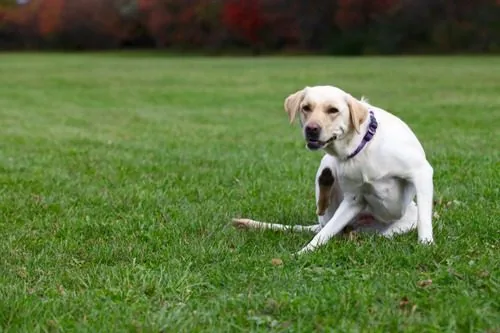New Puppy Vet Visit in Atlanta, GA: What You Can Expect
You’ve waited for weeks, months, or even years for this moment. Your new puppy is coming home! You thought everything through. The perfect breed, the perfect toys, and the perfect name. But have you made your first vet appointment? It’s critical to see your vet in the first few days of bringing your puppy home. Whether he came from a breeder, the shelter, or a store, he needs to be checked to make sure he’s healthy.

Choosing The Right Vet for Your New Puppy
Most veterinary clinics will let you stop by before you even set an appointment to meet the veterinarian, staff, and check out the facility. This may be a good idea for new puppy owners since you will have plenty of appointments over the next few months. I mean you probably spent a significant amount of time researching your breed or where you got your puppy from. You should do the same with your vet. You want to have a good feeling for who will be providing your puppy care.
Prepare For The First Vet Visit
Once you have your first visit scheduled, it’s time to get prepared. Make sure you bring any relevant paperwork with you that might show previous vaccinations or any health concerns. You should also have a fresh-as-possible stool sample for your vet to test. They will be looking for roundworms since most puppies get them. Bring either a crate or put the puppy on a leash. A crate is likely the better option since your puppy won’t be leash trained. Finally, have on hand notes on what you’re feeding and how much as well as any questions you have for the vet.
Topics to cover during your puppy’s first vet visit should include:
- What to do if there is an emergency after hours or on the weekend
- When to spay or neuter if you’re choosing to do that
- Dental hygiene and grooming
- Nutrition
- Medication for parasites and preventative measures
- The vaccination schedule
- Microchipping and tags for identification
- Potty training tips
Ask Breed-Specific Questions
You may even have breed specific questions depending on what kind of puppy you chose. Each breed has its own quirks, so it might be a good idea to talk those over with your vet. Ask plenty of questions so that you don’t leave wondering if you misunderstood something. If you do forget something, though, you can always call back.
Physical Exams for Puppies in Atlanta, GA
During your first visit, your vet will perform an all-encompassing physical examination. The vet will watch how your puppy walks around the exam room. They will then do a nose to tail physical. The vet will weigh your puppy, take the temperature (rectally, just FYI), check the pulse and heartbeat, and look over the whole body. This includes the eyes, ears, nose, feet, nails, skin, coat, and genitalia. Your vet will also check the teeth, gums, and mouth. Using their hands, they’ll feel the lymph nodes, joints, organs, and abdomen. This is called palpating. Then the vet will check the puppy’s reflexes.
If you’ve adopted a puppy that is older than 6 months, the vet may draw some blood to check for heartworms. They will check the stool sample for parasites. Any other lab tests are dependent on what your vet says is best.
Appetite and Eating Habits
You should know a few things going into the appointment to discuss. A few things that may come up are his appetite, whether he’s experienced vomiting or diarrhea, and any behavioral problems you may have noticed even in the short time you’ve known him. Keep notes on a pad or in your phone so that you can discuss anything the vet brings up.
Vaccinations for Your Puppy
Your vet will also discuss a vaccination schedule with you. You can decide together which vaccines you want to get that day and then come back for boosters as needed. Usually, you’re looking at going to the vet every 3 to 4 weeks at about 6 weeks of age until the puppy is 4 or 5 months old.
Core vs. Non-Core Vaccinations for Puppies
There are both core and noncore vaccines. The core vaccines are distemper, adenovirus/hepatitis, parvovirus, and rabies. The noncore vaccines include bordetella, parainfluenza, leptospirosis, Lyme disease, and canine influenza. Basically, core vaccines are not optional but noncore ones are optional. You should discuss with your vet whether you should do the noncore vaccines. They will have the best advice.
These regular check ups for boosters have an added benefit. While no one will probably know your puppy better than you will, you want your vet to be very familiar with their behavior. This could be critical when your puppy gets sick. They’ll be able to notice if something is off and it can help them diagnose an issue.
Paying for Your Puppy’s First Visit
Once the exam is over, it’s time to pay. You can expect to pay somewhere between $75 or $100 for the exam and then vaccinations will be additional. You can always call ahead and ask so that you aren’t surprised. Most clinics will have payment plans of some sort that you can discuss. You may also benefit from pet insurance. All deductibles and copays vary, but it can offer some peace of mind knowing that you have help if something goes wrong. It’s not too out there to assume your puppy will probably have a few health complications along the way.
Schedule Your Puppy’s Next Appointment During The First Visit
Before leaving, you should go ahead and schedule your next appointment. If you can schedule more than one, that could be helpful. Then you can get them all on your calendar. Vaccines are only effective if you follow up with the boosters.
Healthy Puppies in Atlanta Start With Routine Vet Visits
And that’s it! You officially completed your first vet visit with your new, sweet puppy! It can seem overwhelming to take all of this information in and to remember to cover everything. Remember to not stress and to enjoy yourself. They’re only little for a finite amount of time, so you don’t want to spend the whole time worrying. If you forgot something, just call and talk to your vet. They are there to support you and your puppy.
Did you just get a new puppy in the Atlanta, GA area? Visit us at The Village Vets in one of our locations.
Recent Posts
About The Village Vets
The Village Vets is a network of animal hospitals based in Atlanta, GA and the surrounding area. We offer honest, excellent service to our clients in a comfortable, friendly atmosphere. To learn more about our locations and how we can better serve you and your pet, click the button below.
Share This Post
Recent Posts
About The Village Vets
The Village Vets is a network of animal hospitals based in Atlanta, GA and the surrounding area. We offer honest, excellent service to our clients in a comfortable, friendly atmosphere. To learn more about our locations and how we can better serve you and your pet, click the button below.



